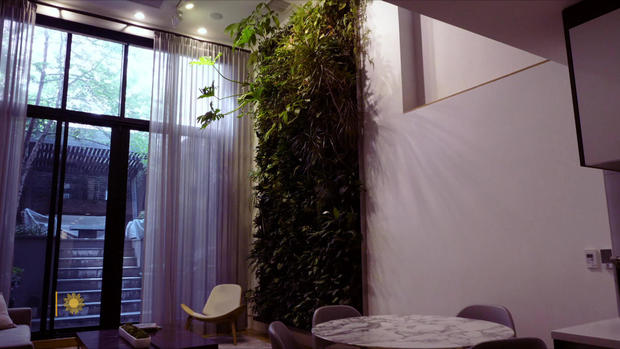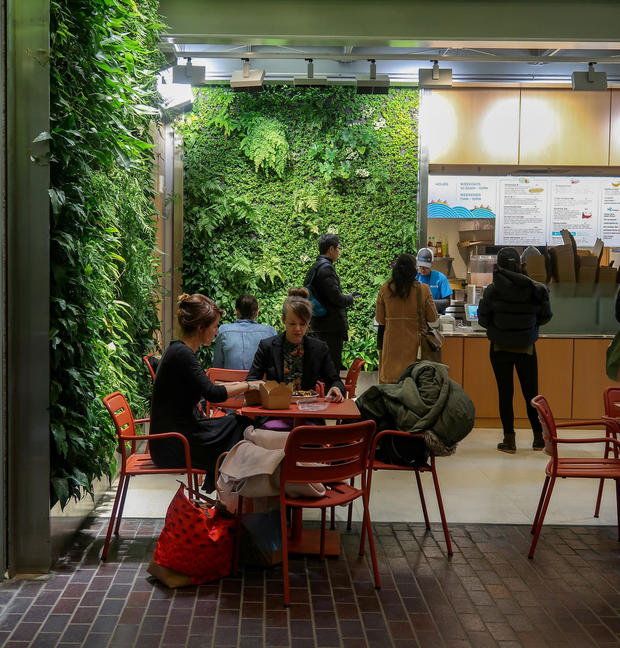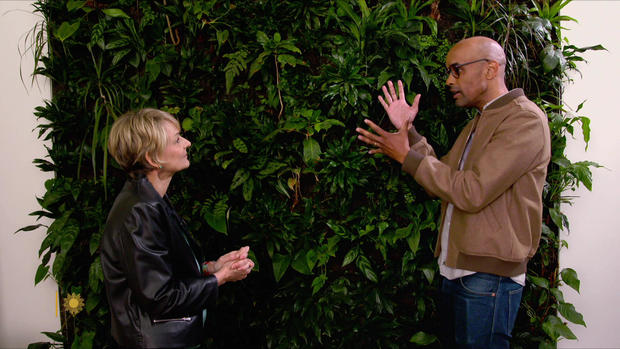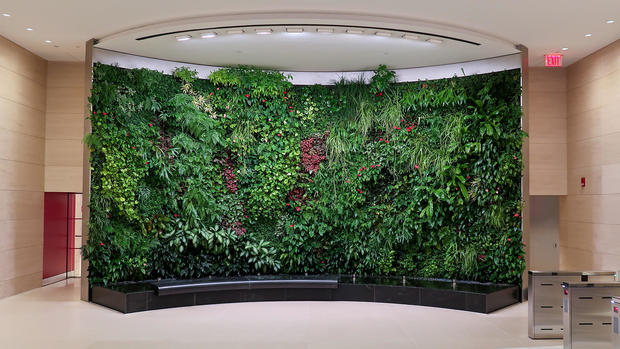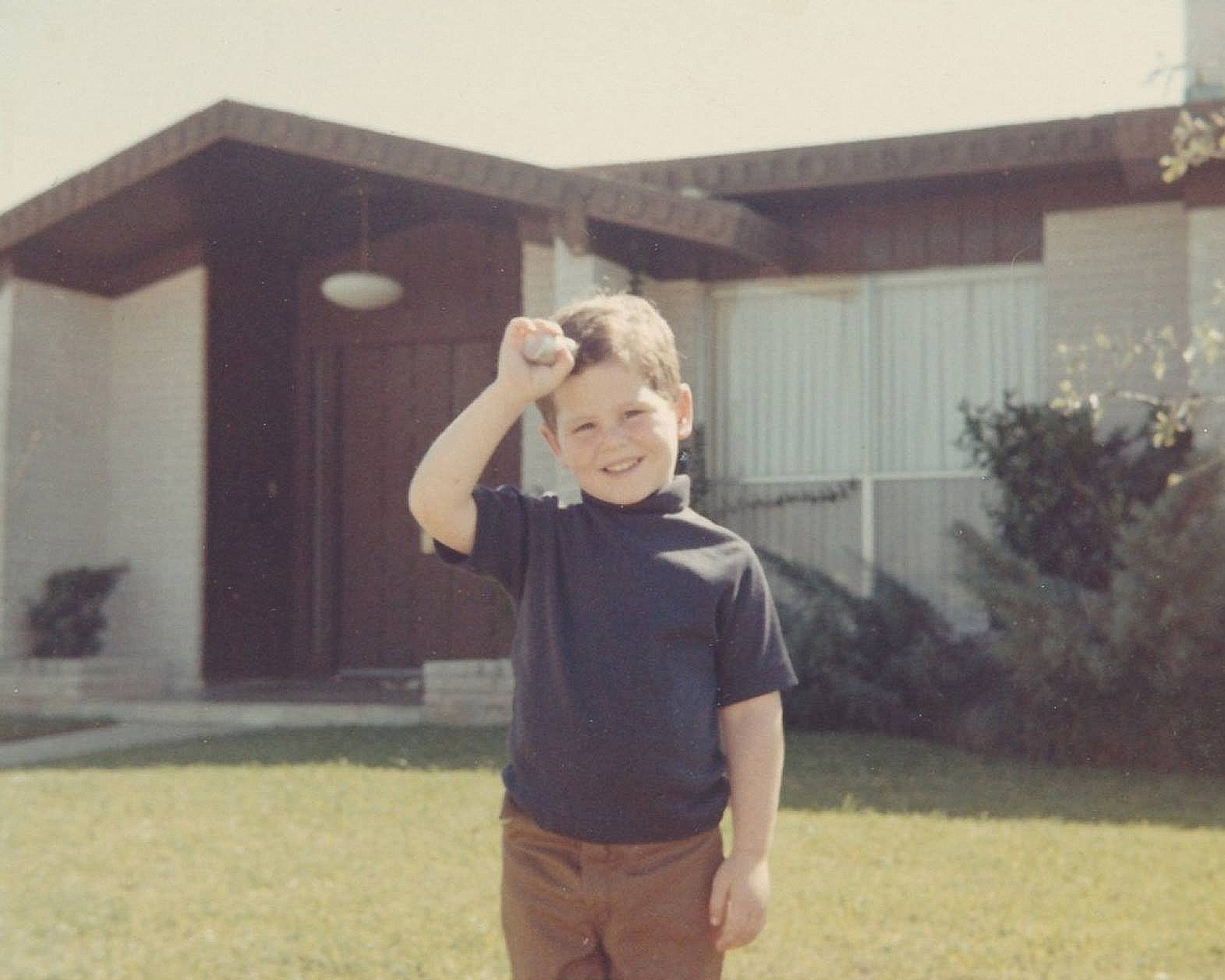Designing plant walls for home and office
Seven years ago, Stephanie Joshi decided the family room of her New York City townhouse wasn't quite wild enough; she decided to put a jungle on her wall. Why? "To bring outside in," she said.
As for her kids, Joshi said, "A lot of their life has been spent in front of this wall, whether it's putting on little plays, or just laying underneath it and reading a book or playing a game. So, they've kind of grown with the wall."
Stacy Coleman owns Plant Wall Design, the company that built and maintains Joshi's wall: "She brought nature in, and now it's here to stay," Coleman said. "Plant walls are living art."
Correspondent Kelefa Sanneh asked, "This isn't gonna replace a farm, but it could replace a photograph, or a painting?"
"Absolutely."
Having plants growing out of the walls seems to violate the laws of both gravity and nature.
Sanneh asked, "Where is the dirt?"
"We clean the soil off the roots of the plant," Coleman said. "And we plant the plant in-between the two growing mediums. The back is where the irrigation goes."
This particular hydroponic system, which has absorbent, felt-like material in front of and behind each plant, is patented in Europe by the so-called father of green walls, Patrick Blanc. Plant Wall Design holds the United States' patent.
Behind the growing medium, all the roots of different plants are connected. "You would never do this, but if you took the front layer off, you would basically see this gigantic, complicated web of roots," Coleman said.
Sanneh asked, "When some of these plants start getting really big, is the growing medium strong enough to support them? Could they just tip over and fall off?"
"We've never had that happen," she replied. "Sometimes we think of plants as being very heavy. But what's heavy is the soil."
This technique was developed in the 1990s, but Coleman says today plant walls are more popular than ever: "It is so exciting. In the last year-and-a-half corporations have sort of twigged on the idea that it's healthy, and it's gonna bring employees back in, because when they look up from their desk, they're going to see essentially a forest in front of them."
Coleman said green walls don't just look good: "They regulate humidity. They attenuate sound, because of the density of the plants per square foot. They release oxygen into the air. And it's a carbon reducer."
Of course, a green wall costs more than a potted plant. Stephanie Joshi's 8x13 foot wall cost $18,000 to install. And the wall's maintenance, supplied by Coleman's company, runs about $400 per month.
"I do not have a green thumb!" Joshi laughed. "And they said, 'No, we'll do everything. We'll come in once a month. We'll trim it up.' The plant wall waters itself. I just get to sit back and enjoy it!"
For more info:
Story produced by Mary Raffalli. Editor: Ed Givnish.
